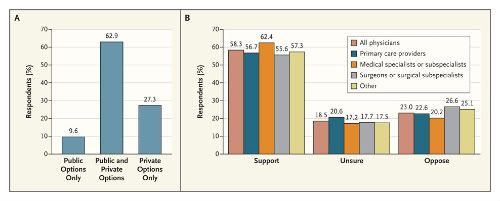Well, August has been a long and frustrating month of ‘made-for-media’ controversies and equally irrelevant prognostications on the likely outcomes of the upcoming midterm elections. It would seem, from all the headline-mongering and talk show bloviating, that Democrats are in for a whuppin’ along the lines of 1994 but the polls don’t lie, very often, and things may not be what they seem at first glance.
Are Democrats going to lose seats? Pretty bloody likely. Are they going to lose control of the House and the Senate or both? Hard to say but probably not. Sound counter-intuitive given the current conventional wisdom, such as it is? Lets take a closer look, it’s pretty clear that things have been headed the Republicans’ way recently, no argument. But how much?:
We could obsess further over the consistent differences among pollsters, but what is far more important, is that the averages show a GOP lead that has been trending in the Republican direction all summer. That trend is consistent with the historical pattern identified here on Friday by political scientists Joe Bafumi, Bob Erikson and Chris Wlezien, the “electorate’s tendency in past midterm cycles to gravitate further toward the “out” party over the election year.”
Moreover, you see the same trend even if we drop all Newsweek and Gallup polls, plus all of the Internet-based surveys and automated surveys (including Rasmussen), and focus only on the remaining live-interviewer telephone surveys, as in the chart [shown here]. The margin for the Republicans is virtually identical (46.6% to 41.4%).
So while the “unprecedented 10-point lead” reported by Gallup probably exaggerates the Republican lead, any result showing a net Republican advantage on the so-called generic ballot is bad news for Democrats. Bafumi and his colleagues estimated their 50-seat gain for the Republicans assuming a two-point advantage for Republicans on the generic ballot, which they project will widen to a six-point lead by November.
Mark Blumenthal – Gallup vs. Newsweek on the Generic Pollster 30 Aug 10
Fifty seats is a shocker, to be sure, but trends away from the incumbent majority seem to also be unexceptional, historically, in American politics. And since the cited post was written the generic ballot gap has apparently narrowed again slightly to 3%. How determinate is the generic ballot polling to a large number of specific races? And what are the issues affecting polling at this stage for a midterm election in both houses?
 For years progressives have assumed that the ideological trajectories of both the Republican Party, certainly, and to a lesser but substantive degree the Democrats themselves, have been aligned variously with the aspirations of corporations to wriggle free from government regulation and taxation. This is arguably intended to benefit their profits at the expense, contrary to the ideological framework within which it is usually promoted, of the welfare and best interests of the citizenry.
For years progressives have assumed that the ideological trajectories of both the Republican Party, certainly, and to a lesser but substantive degree the Democrats themselves, have been aligned variously with the aspirations of corporations to wriggle free from government regulation and taxation. This is arguably intended to benefit their profits at the expense, contrary to the ideological framework within which it is usually promoted, of the welfare and best interests of the citizenry.
 he initial reaction of the Republican Congressional delegation to the historic passage of the health care reform bill seemed predictable and unequivocal. They are going to run on repealing it in the 2010 midterm elections.
he initial reaction of the Republican Congressional delegation to the historic passage of the health care reform bill seemed predictable and unequivocal. They are going to run on repealing it in the 2010 midterm elections. ell, the verdict is in on the investigation of the Lehman Brothers collapse in 2008 and in the words of Judge James M Peck, who unsealed the report today, it reads “like a best-seller.” Yeah, by Stephen King.
ell, the verdict is in on the investigation of the Lehman Brothers collapse in 2008 and in the words of Judge James M Peck, who unsealed the report today, it reads “like a best-seller.” Yeah, by Stephen King. ince the arguably tepid advocacy for health care reform in Obama’s State of the Union address the President’s resolve to stake his political fortunes, and by implication those of his majority legislators, on the passage of a health care reform bill has become clearly evident. And even in that speech his message to his Congressional party was unequivocal, “To Democrats, I would remind you that we still have the largest majority in decades, and the people expect us to solve some problems, not run for the hills.”
ince the arguably tepid advocacy for health care reform in Obama’s State of the Union address the President’s resolve to stake his political fortunes, and by implication those of his majority legislators, on the passage of a health care reform bill has become clearly evident. And even in that speech his message to his Congressional party was unequivocal, “To Democrats, I would remind you that we still have the largest majority in decades, and the people expect us to solve some problems, not run for the hills.” After their resounding defeat in the 2008 general election there was a fairly common consensus that the Republican Party would, of necessity, remake themselves. A new party would emerge disassociated from the opprobium of the Bush administration and its policies with a recalibrated ideological compass; with upgraded doctrine and technology for the upcoming political battles of the new millenium.
After their resounding defeat in the 2008 general election there was a fairly common consensus that the Republican Party would, of necessity, remake themselves. A new party would emerge disassociated from the opprobium of the Bush administration and its policies with a recalibrated ideological compass; with upgraded doctrine and technology for the upcoming political battles of the new millenium.  hen a genuine democracy acts in the world it does so in the name of its citizens, especially when the preamble to its Constitution begins “We the people…,” basically meaning all of us. This is the foundation of our rights and also our responsibilities, not only as citizens of our own fair republic but as a people among the nations of the world. And our values are fairly judged, domestically and abroad, by the intentions and outcomes of those actions.
hen a genuine democracy acts in the world it does so in the name of its citizens, especially when the preamble to its Constitution begins “We the people…,” basically meaning all of us. This is the foundation of our rights and also our responsibilities, not only as citizens of our own fair republic but as a people among the nations of the world. And our values are fairly judged, domestically and abroad, by the intentions and outcomes of those actions.
